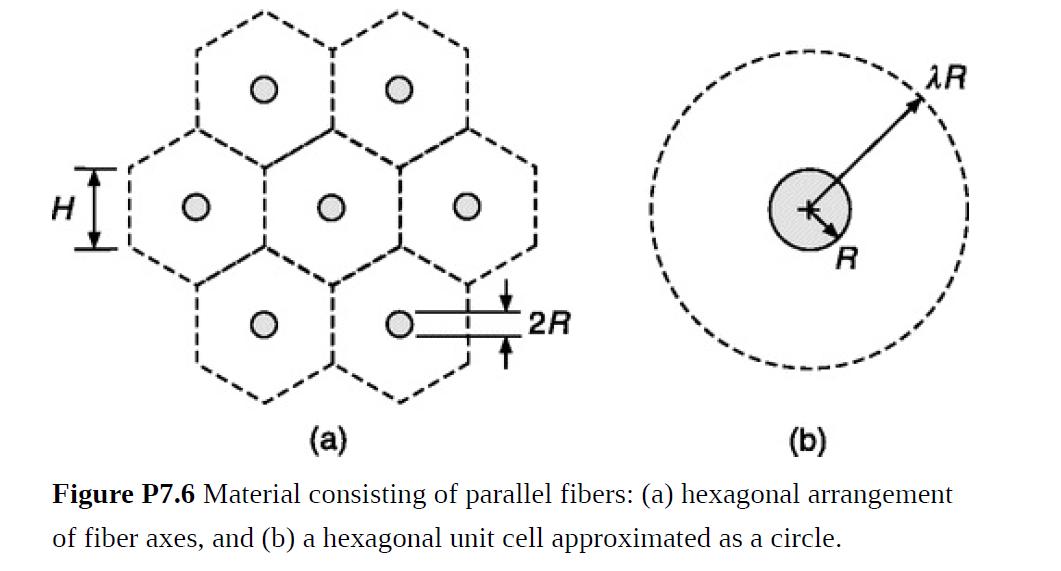It is desired to predict the Darcy permeability k of a porous material that consists of many
Question:
It is desired to predict the Darcy permeability k of a porous material that consists of many cylindrical fibers arranged in parallel. For simplicity, assume that long fibers of radius R are equally spaced and that the flow is parallel to their axes. A particularly symmetric configuration is shown in Fig. P7.6(a), in which the cross-section is divided into identical hexagonal cells. It is sufficient then to consider a single fiber. A further simplification is to approximate the hexagons of side length H as circles of radius λR, as enlarged in Fig. P7.6(b). For equal areas, λR = 0.91H.
(a) Determine the fully developed velocity profile, vz(r), for a given pressure drop per unit length,![]()
Based on the symmetry, you may assume that τrz = 0 at r = λR.
(b) Calculate the volume flow rate per fiber and use that to find the superficial velocity.
(c) If the fibers are widely spaced (λ ≫ 1), show that
where d(= 2R) is the fiber diameter and ϕ(= 1/λ2) is the volume fraction of fibers. Note that this result has the same form as Eq. (3.4-12), which is for randomly oriented fibers. The parallel arrangement and flow direction assumed here merely affected the constants (1⁄16 vs. 3⁄80 and 3⁄2 vs. 0.931).
Step by Step Answer:

Introduction To Chemical Engineering Fluid Mechanics
ISBN: 9781107123779
1st Edition
Authors: William M. Deen





